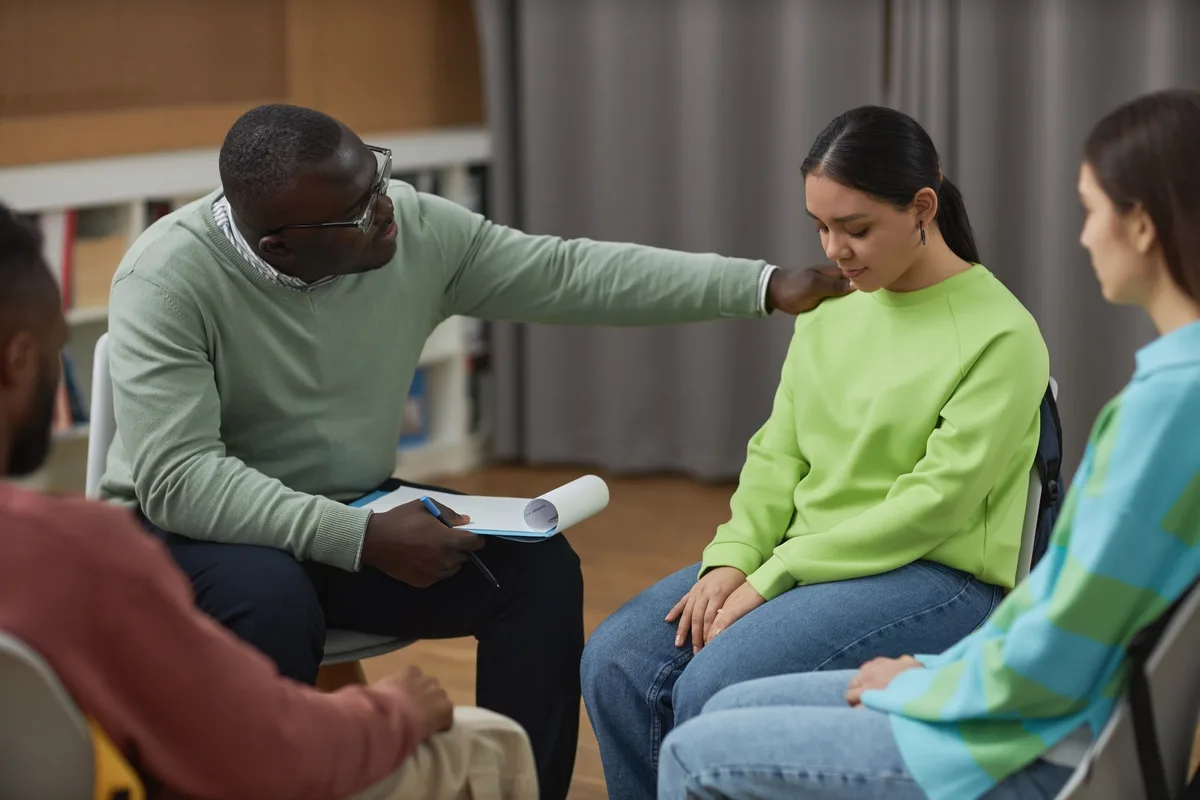24/7 Helpline:
(866) 899-221924/7 Helpline:
(866) 899-2219
Learn more about PTSD Treatment centers in Montrose

Other Insurance Options

United Health Care

AllWell

Providence

EmblemHealth

Magellan

Sliding scale payment assistance

Coventry Health Care

PHCS Network

BlueShield

Horizon Healthcare Service

UnitedHealth Group

Meritain

Regence

State Farm

UMR

American Behavioral

Covered California

Excellus

GEHA

Holman Group
























